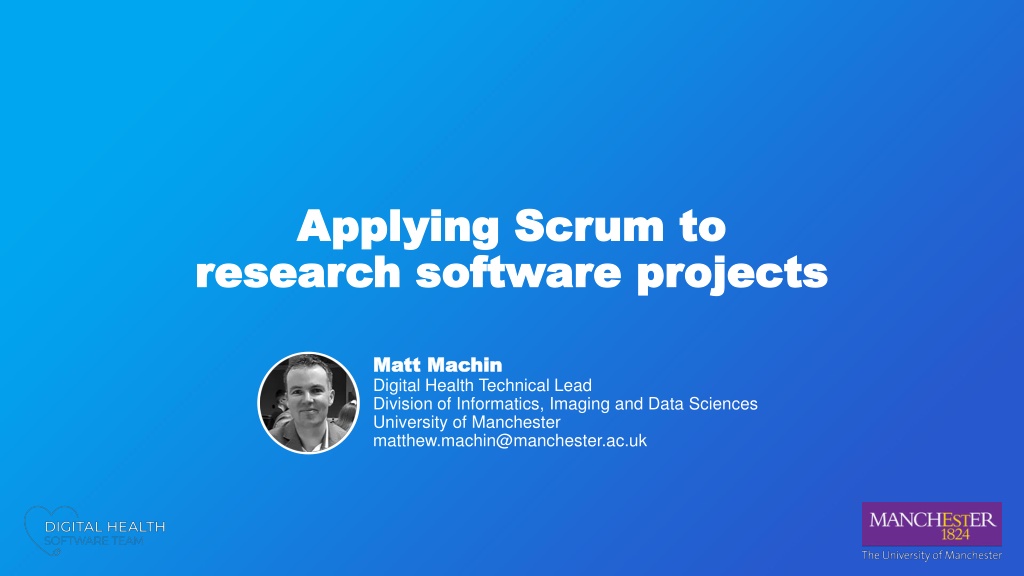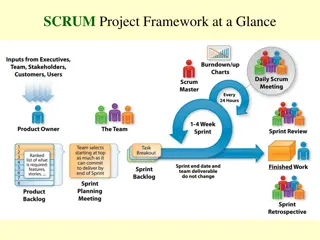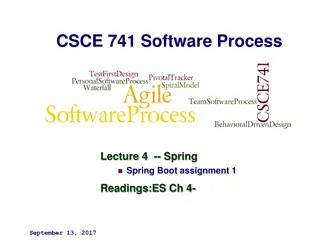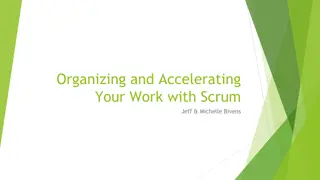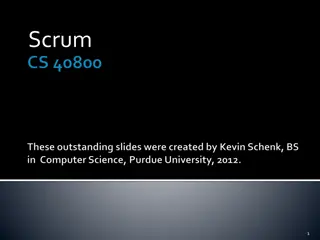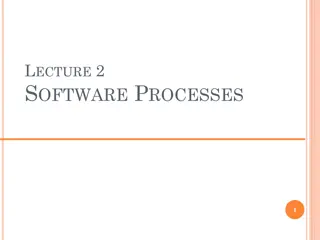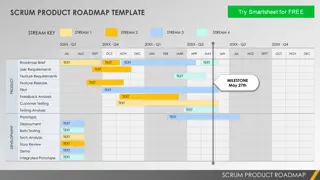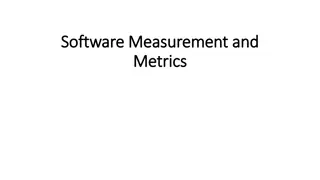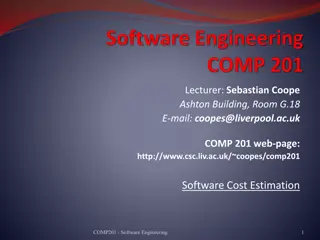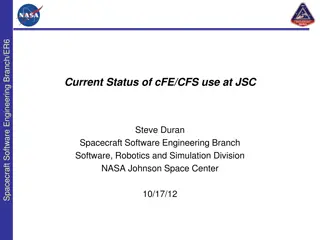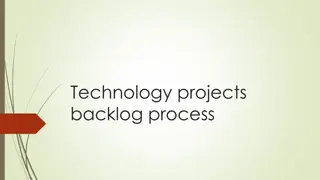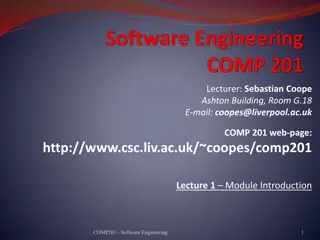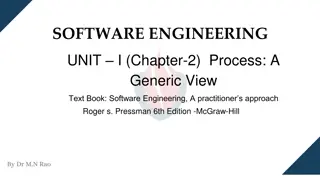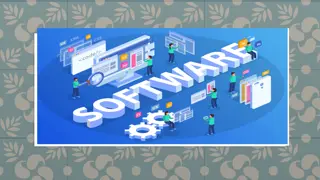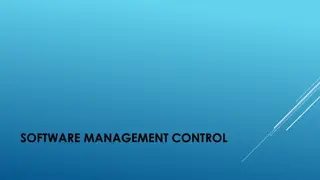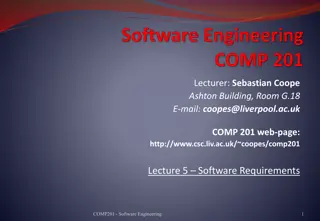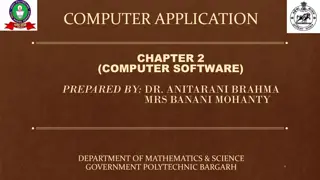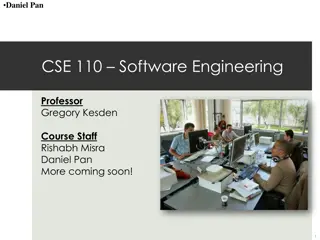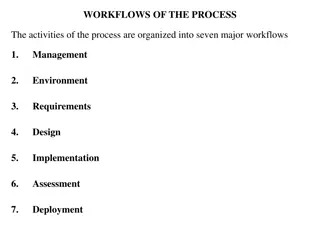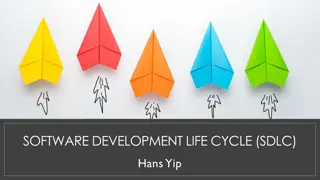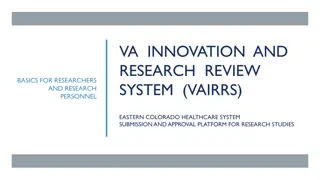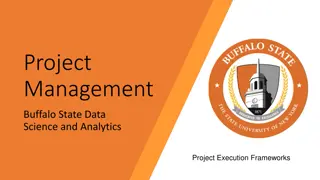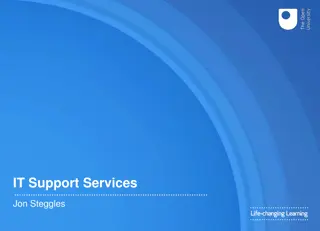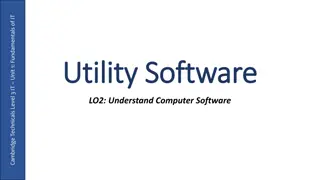Applying Scrum to Research Software Projects
"Explore the implementation of Scrum methodology in research software projects by Matt Machin, a Digital Health Technical Lead at the University of Manchester. Learn about the basics of Scrum, team roles, events, artifacts, successful strategies, challenges faced, and adaptations made. Discover how Scrum can enhance productivity and collaboration in research software development."
Uploaded on Oct 02, 2024 | 0 Views
Download Presentation

Please find below an Image/Link to download the presentation.
The content on the website is provided AS IS for your information and personal use only. It may not be sold, licensed, or shared on other websites without obtaining consent from the author. Download presentation by click this link. If you encounter any issues during the download, it is possible that the publisher has removed the file from their server.
E N D
Presentation Transcript
Applying Scrum to Applying Scrum to research software projects research software projects Matt Machin Matt Machin Digital Health Technical Lead Division of Informatics, Imaging and Data Sciences University of Manchester matthew.machin@manchester.ac.uk
Applying Scrum to research software projects Applying Scrum to research software projects Introduction to Scrum How to apply Scrum to research software projects What has worked well Challenges faced How our approach has changed
Introduction to Scrum Introduction to Scrum Modern Agile software development methodology Developed in the 1990s and has evolved over time Three main elements: Team & roles Events / meetings Artifacts
Team and roles Team and roles Developers (or team members) Product Owner Scrum Master Responsible for Scrum process Responsible for requirements capture & prioritization Carry out the work Leads Scrum meetings Commit as a group to delivery Owns product backlog Coaches and supports the team
Events / meetings Events / meetings Sprint retrospective What went well / could be improved The Sprint Fixed length events (typically 2-4 weeks) Focused on delivery of a specific goal Daily scrum - Developers report on What they did yesterday? What they will do today? What is in their way? Sprint planning Agree goal Work items to include in sprint Sprintreview Demonstrate sprint output Agree changes needed
Artifacts Artifacts Product Backlog Sprint Backlog Sprint goal (short term) Ordered list of requirements Real-time view of work within a single sprint Product goal (long term) Owned by dev team
Applying Scrum to software research projects Applying Scrum to software research projects What has worked well Challenges faced How our approach has changed
What has worked well What has worked well Effective way of planning Good for team ownership / engagement When applied effectively enables issues / delays to be picked up quickly Review and retro allows for regular feedback and process improvements Is fairly lightweight
Challenges faced Challenges faced Commitments in grant application with fixed funding Insufficient access / availability of research team Customer proxy not always ideal Dev team can lose sight of overall project goals
How our approach has changed How our approach has changed Initially had small team so single person as Scrum Master and Product Owner. This is BAD! As team grew were able to separate these roles Now give team better visibility and ownership of longer-term goals Experimenting with different estimation approaches
Conclusions Conclusions Can Scrum be applied to research software projects? Yes! Carefully consider roles Adjust approach to reflect relationship with research team Regularly review and improve process
